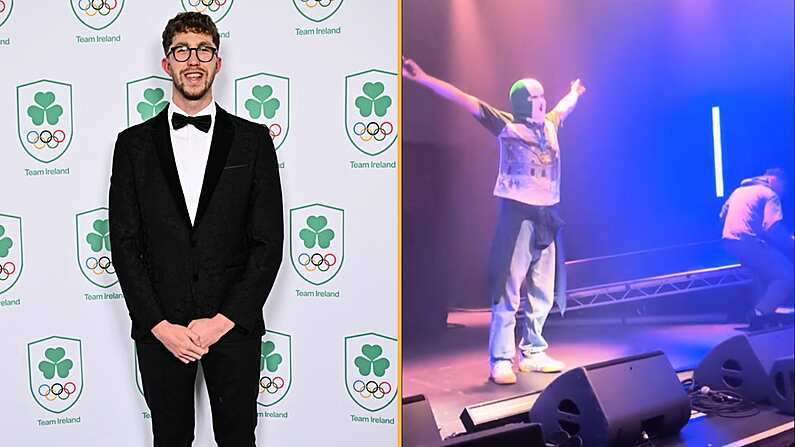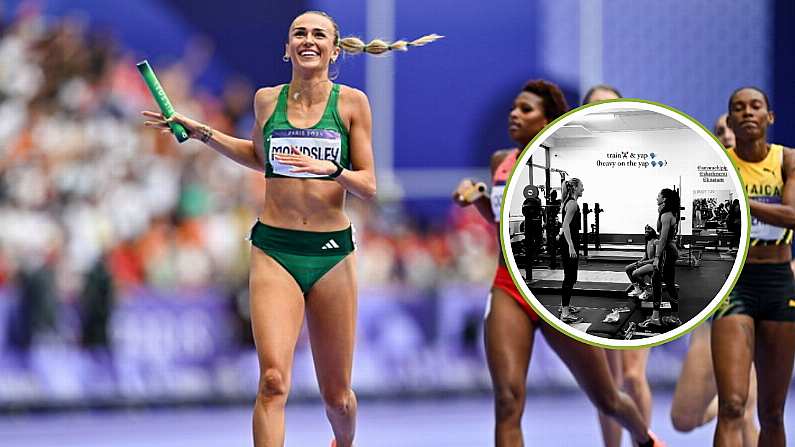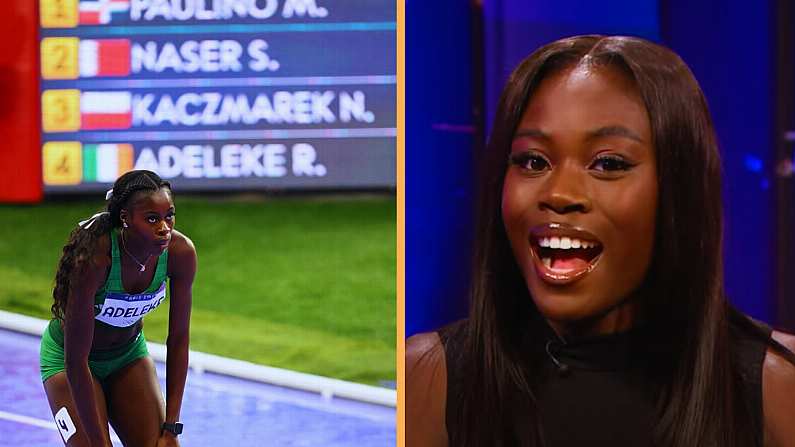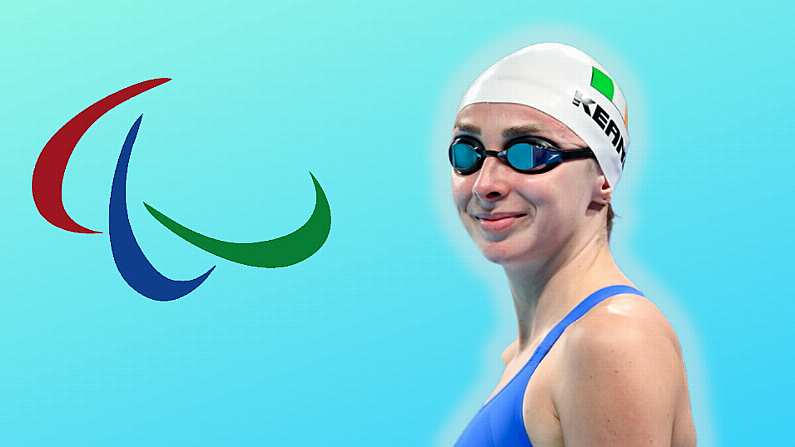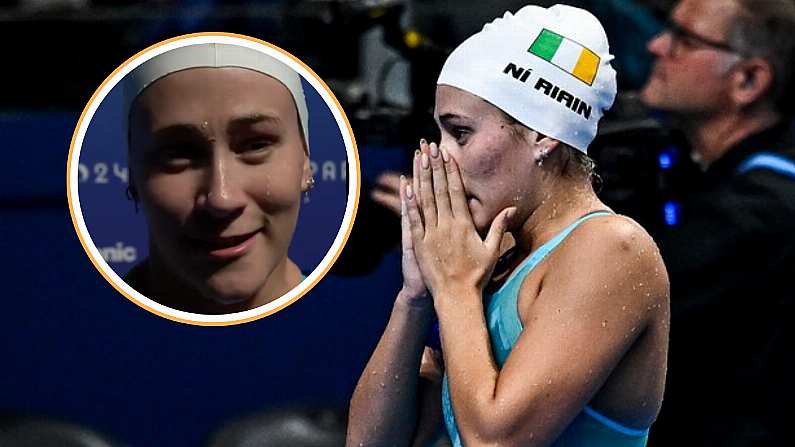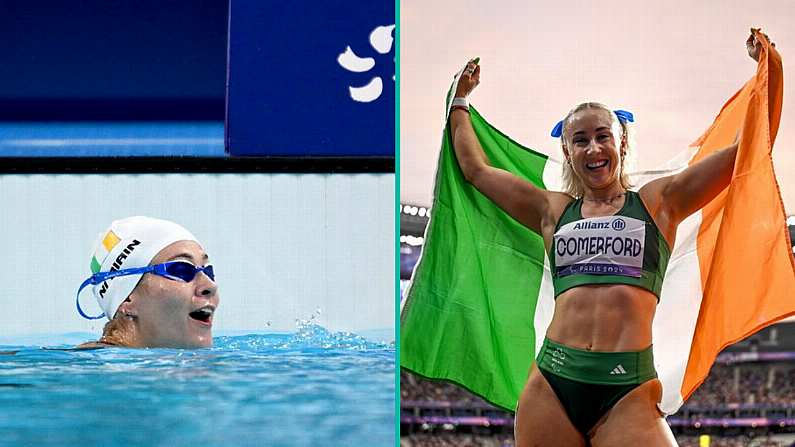And so, those of us with our gaze perpetually fixed on the world of sport turn our attention to the grand, miscellaneous circus that is the Olympic Games. In the coming weeks heroes and heroines will emerge from the shadowy fringes of our sporting consciousness into the full glare of the spotlight; sports rarely given a paragraph of our attention will be at the forefront of our thought. Whole lives of devotion and commitment will boil down to perhaps seconds of action on our television screens and inevitably all the ranges of human emotion will pour out in front of us in all their naked beauty and ugliness.
Four years ago, Ciarán Ó Lionáird walked off the track in London after finishing second last in his heat, searching for somewhere to bury the hurt, disappointment and frustration that screamed inside him; instead he found an RTÉ camera and poured his heart out to a nation he felt so proud to represent. The cruelty of being constantly held back by an Achilles injury and the feeling that the wind of Fate always seemed to blow against him had brought him beyond breaking point and near implosion. But he came roaring back with a bronze medal at the European Indoor Championships in Gothenburg in 2013 in a race that, for a tantalising moment, he seemed capable of winning. And, in January of 2014, Ó Lionáird sat and spoke to Newstalk's Joe Molloy with hope in his heart and his eyes set on the road ahead.
But while Ó Lionáird seemed to be drifting along nicely towards Rio, the fickle current carrying him along silently and ruthlessly changed. A second surgery in 2015, leaving him wheelchair bound, left his career on the rocks and his Olympic hopes on an uncertain knife-edge. His optimism early in 2016 was finally eroded by the harshness of reality as Rio proved a step too far.
Many sportspeople would, and have, been racked with bitterness at such circumstances. But, speaking to 'Balls.ie', Ó Lionáird refuses to consider his career in self-pitying terms.
Running has given me a lot of opportunities, it has given me an education. It has given me a team, an identity at Florida State (University) and a community that I really connected with. I’ve got an education, I’ve got a career and I’ve made a life for myself in the US on account of it.
Everyone’s body is built a certain way. I’ve got some positive attributes. And I’ve obviously been built with a good engine and I have good leg speed and some people don’t have that leg speed. My weakness, in how I am constructed, (is that) I have some imbalances that caused me to be more injury-prone and especially down my lower legs and my tendons...I don’t see it as an injustice as such because everybody’s body is different. Everybody who steps on the line, they’ve been dealt the hand they’ve been dealt...that's just life. You just have to roll with it, I suppose.
Ó Lionáird admits that he was a little green going over to the States as an eighteen-year-old kid fresh off the Leaving Cert, leaving behind the comfortable surrounds of Cork and Leevale AC, and admits that even four years ago he "was mentally not developed as an athlete" and that this "probably showed during that interview after London."
Ó Lionáird admits he is trying to "stay busy" with the Olympics dominating media coverage, and is putting firm steps in place towards the next chapter of his life (more on that later). But, while he may be trying to put it from his mind somewhat, he expresses some strong views on the Games this year, specifically the IOC's decision not to ban the entire Russian Olympic team from competing. Ó Lionáird opines that it is a "PR disaster to not ban them" and describes the reaction the decision sparked in the States-"so many media pundits have basically said, 'Russia aren't even banned for doing this...why would we even bother watching?'"-but does, interestingly, believe the Russians are being scapegoated somewhat for what is a wider problem in the sport:
I think we have to be very careful not to shine the magnifying glass too closely on one country and all of a sudden having a sense of myopia, not really exploring who else is doping. But at the same time, this is the first time since East Germany that we have really seen a government sponsor doping...in other countries it is maybe agents, or coaches, that are supplying the drugs to athletes, and it is on more of a private basis. This was a publicly funded, state sponsored programme. Russia does have to serve harsher consequences than other countries at this point. But with that said there also needs to be a close eye kept on countries which have lapsed testing policies.
The IOC has also faced heavy criticism over the decision to include whistleblowers in the Olympic ban on Russian athletes who have previously tested positive. Ó Lionáird does feel somewhat sorry for such figures, and feels they should be rewarded for their efforts somehow. But he does not necessarily think that this should extend to a right to compete.
They are ostracized from the communities that they were once in-for whistleblowing-and at the same time they are ostracized from the community that they are serving. So they are almost taking a double hit. There has to be a way to protect whistleblowers (but) you go into the realm of hypocrisy if you start saying that whistleblowers should be allowed to compete, because they did take drugs...maybe we take some of the prize money won by drug cheats and we deliver that to whistleblowers, should they give information that leads to convictions or whatever. As opposed to letting the whistleblowers compete.
Earlier in the year, Irish Olympic hopeful Mark English highlighted his suspicions about certain athletes in his own category (800 metres) and the lack of reporting procedures available for athletes themselves to raise concerns about opponents. Ó Lionáird laughs whenever I ask him if there were ever any opponents of whom he had suspicions during his own career.
Yeah. There’s a bunch! If I was to have a conversation with you off the record, yeah, I could say (who)...I guess the track and field community is a small community and there’s always people you know who are doing stuff, and there’s people that have certain reputations.
But he would not include Alberto Salazar among them. Salazar, a coach Ó Lionáird trained under within the Nike Oregon Project, was the subject of widespread doping-related allegations in a BBC Panorama documentary in June of last year-allegations Salazar himself disputed in a document that was over 11,000 words long. Ó Lionáird saw nothing within the documentary to diminish his admiration of the man behind Mo Farah and Galen Rupp's Olympic successes.
Alberto is somebody who has given me a lot of advice in my career, I have no problem saying that, we’re on very good terms. I was in that (training) group, and in very close quarters, and there was nothing but hard work and positivity...I also know the people that were on the other side of that documentary, that were making the accusations and I don’t really trust them. And that’s based on some personal experience.
One thing that stands out from even a casual perusal of Ó Lionáird's social media accounts is that he does not appear to be defined by his sport. He keenly pursues and enjoys life off the track, and his time spent in a running singlet is only a singular aspect of his varied existence.
Let's fight for #LGBT equality ahead of the #Sochi2014 Games with @AthleteAlly . @NickSymmonds & I are in, are you? pic.twitter.com/qAPEIEhiZz
— Ciarán ó Lionáird (@GoCiaran) January 8, 2014
He admits that this has been, to a degree, because of an outlook that has always had one eye on what he will do after his career. Which leads to the elephant in the room, and the question which all followers of Irish athletics will be keen to know the answer to-is this the end of Ciarán Ó Lionáird's career as a professional athlete?
The 28-year old's response suggests that even he does not know the answer.
I’m finished this stage of running, what running is for me right now. I don’t want to use the word retirement, because who knows? Maybe moving into (the) corporate (world) will foster a new love for running, or what running means to me. But in terms of running being the primary, primary focus, I think that has come to an end for me. But again, I’ve been very close to it, I’m linked in very closely with a company (Nike) that is dedicated to sport and dedicated to running. Running will be in my life.
So, is there any chance we might see him on a track again? Or have we waved goodbye to one of the great talents of Irish athletics?
I can’t say yes or no to that right now. I did a ten minute run yesterday and I woke this morning and could barely walk down the stairs-so that might tell you where my body is right now, and I’m not getting any younger.
It would be a tough ask, and it’s something I’m not going to think about right now...my last race, I didn’t finish it. Do I want to end on that note? Probably not. But if I have to, it’s not going to be the worst thing in the world. So we’ll see how it shakes out.
But right now, my mind’s focussed on some other things. I’m happy. And I’m excited for the Irish team in Rio, I'm very excited for the Oregon Track Club team-mates I have. This sport is great-you build relationships-and I’ve been nothing but fortunate. So, onwards and upwards.
One thing I can say after 10 years in the States, and much traveling worldwide...there's nothing beats the Global Irish community...thankful
— Ciarán ó Lionáird (@GoCiaran) August 2, 2016
And so, perhaps, Ciarán Ó Lionáird leaves us-as he has so many opponents-in his wake. And what can we do but wish him every success. And maybe, just maybe, watch him depart with a small sigh and a lingering feeling that he never got quite as much out of sport as he deserved.
But then, who are we to do that, when Ó Lionáird himself remains as positive as ever, unbowed by the blows he has received, refusing to look back with regret and filled with gratitude and hope for the country he left in order to become who he is.
I just want to thank everybody. The words of support I’ve had since this chapter has closed have been amazing. Ireland’s a country that can produce world class athletes, I don’t feel like I’m an anomaly. I hope that when I went out and made a final in 2011 it showed that we can do this, and we are talented. I’ll be looking out for the young Irish athletes coming up and, like I said, I’m very, very grateful for the support...I appreciate it.
Talented, intelligent, generous-and positive to a fault.







